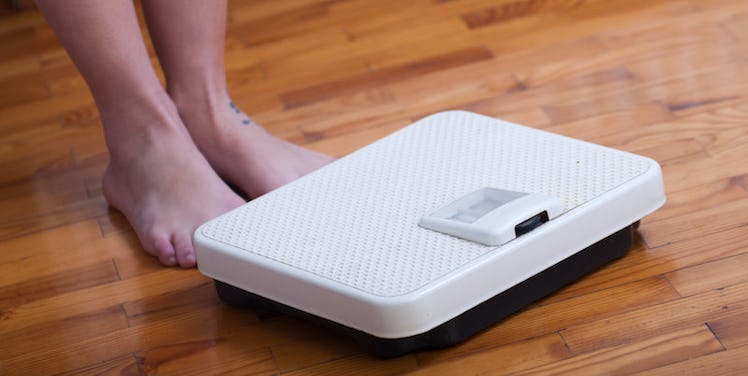
How Much Walking Does It Take To Lose Weight?
I don't own a fitness tracker. I'm not against them or anything; in fact, I think they're great for anyone looking to become more consciously active.
As a New York City resident, though, I walk a lot. I also work out almost every day, so getting enough exercise isn't much of a problem. And frankly, the idea of doing laps around the bodega on my corner at 10 pm when it's 19 degrees outside doesn't sound all that appealing.
Although I've declared fitness trackers "not for me," I do frequently find myself checking my step count on the health app on my phone because it interests me.
What does it all mean? I get between 9,000 to 10,000 steps per day, on average. If I hit 20,000 steps every day, could I eat more doughnuts and still maintain my weight? Would I lose weight sustaining my current diet?
I'm not the only one with these questions. After all, walking is probably the least intimidating form of exercise. My mom is all about taking long walks on her lunch hour in order to get her steps in.
So, how much walking does it actually take to lose weight?
Sadly, I can't present you with a "one size fits all" number you should aim to hit every day. But, based on research and advice from a few fitness instructors, I can give you facts to help you come up with your own number.
Consider your diet.
Ever heard that you can't out-exercise a bad diet? This is true. You cannot live on huge amounts of pizza, bagels and margaritas (sounds amazing, though) and lose weight as long as you get in enough steps.
New York City-based trainer David Jeanty tells Elite Daily,
Your body weight and pace will determine how much you need to walk in order to burn a certain number of calories, so results will vary. Scientifically, though, if you burn more calories than you take in, you should begin to see weight loss. So do the math. If one mile is equal to roughly 2,000 steps (100 calories) and 1 pound is equal to 3,500 calories, then to lose one pound per week you would need to achieve a 500 calorie deficit each day. In theory, you would need to add 10,000 steps each day (that's five of miles walking) to lose one pound week.
While 10,000 steps is the "magic number" most fitness trackers want you to aspire to, it may not be your magic number.
When it comes to weight loss, diet and starting weight also matter. Make sure to take them into account.
Intensity matters.
While taking a slow stroll around the neighborhood is indisputably better than camping out on your couch all day every day, the intensity of your walk does factor into weight loss.
Instructor Jason Tran advises Elite Daily to walk at a "brisk pace for 50 minutes" in order to burn 200 calories, and Art Waltman, director of physiology at University of Virginia tells Health.com,
There is a strong relationship between intensity of exercise and fat-burning hormones. So if you're exercising at a pace considered to be hard, you're likely to release more of these hormones.
So no, you don't need to become a marathoner to reach your goal weight. You may, however, need to start walking a little bit faster. Is that so bad?
Every step counts.
Now that you know what kind of calorie deficit you need to create in order to lose weight, the number of steps you're planning on achieving every day might seem a little daunting.
Again, I imagine myself doing laps around my local bodega when I think about meeting a steps goal. It's not pretty.
But Jeanty promises it's not as hard as it may initially seem.
He tells Elite Daily,
Skip the elevator and take the stairs. Stay on the left side on the escalator (you know, the express lane where you have to walk), jump off the train one stop farther away from the office. Even if you bring lunch to work, take a 10-min walk around the block. The fresh air and blood circulation will be more beneficial than you'd think.
Sorry I can't provide you with an official number. But hey, at least now you know how to come up with one on your own.
So get stepping.